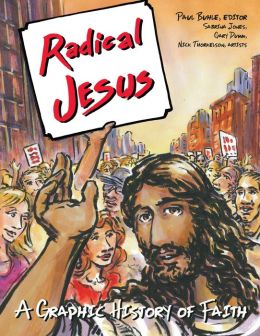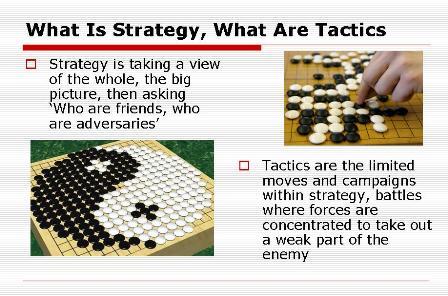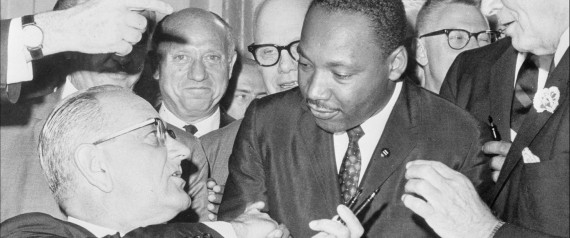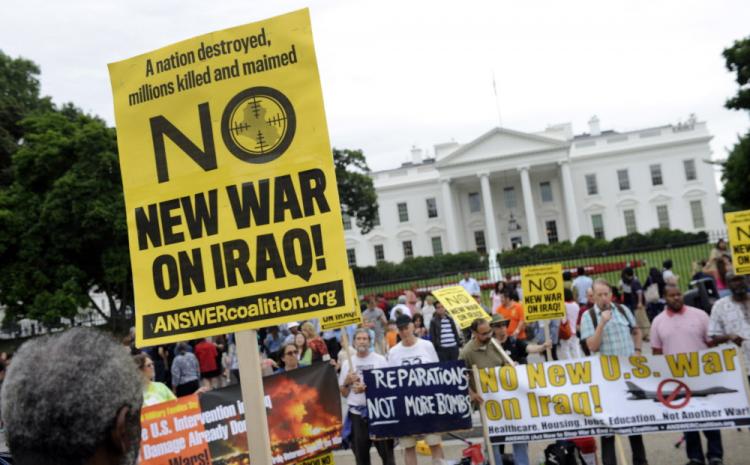 | | Bernie Sanders Explains How Wall Street is Robbing You at the Pump This 4th of July |
|
Blog of the Week... SpeakOutNow.org  Angela Davis and Tim Wise in Conversation on DVD
|
 The new annual edition of our journal of discussion and analysis is now out. More than 170 pages, it includes 14 articles on strategy austerity, organizing, and the right. Cost is $10 plus shipping. Or get one by becoming a sustainer. Click the title to buy it directly. The new annual edition of our journal of discussion and analysis is now out. More than 170 pages, it includes 14 articles on strategy austerity, organizing, and the right. Cost is $10 plus shipping. Or get one by becoming a sustainer. Click the title to buy it directly.
|
 | |
Journal of the Black Left Unity Network
|
|

New CCDS Book Reporting on Vietnam
|
|
Radical Jesus:
A Graphic History of Faith  By Paul BuhleHerald Press By Paul BuhleHerald Press
|

Want to Know what CCDS has
been doing...Check it Out!
|
 Keep On Keepin' On Keep On Keepin' OnHating the 'Middle Class,' Why Socialists Run in Elections, Strategy and Tactics Slide Slow, Class and Privilege, the Green New Deal ...and other Short Posts on Tumblr by Carl Davidson
|

Edited by Carl Davidson Revolutionary Youth the the New Working Class: The Praxis Papers, the Port Authority Statement, the RYM Documents and other Lost Writings of SDS
Changemaker, 273pp, $22.50
For the full contents, click the link and view 'Preview' under the cover graphic.
|
|
By Randy Shannon, CCDS

"Everyone has the right to work, to free of employment, to just and favorable conditions of work and to protection against unemployment."
- United Nations Universal Declaration of Human Rights, December 10, 1948
I. Introduction
The "Great Recession" that began in 2007 has caused the greatest percent of job losses since the Great Depression of 1929. This crisis is the end of an era of unrestrained 'neo-liberal' capitalism that became public policy during the Reagan administration. The crisis marks a new level of instability with the growth of a global financial elite that targeted US workers and our trade unions after World War II.
|
|
Order Our
Full Employment Booklets
 |
...In a new and updated 2nd Edition
Capitalism may well collapse under its own excesses, but what would one propose to replace it? Margaret Thatcher's mantra was TINA...There Is No Alternative. David Schweickart's vision of "Economic Democracy" proposes a serious alternative. Even more fundamentally, it opens the door to thinking about alternatives. His may or may not turn out to be the definitive "successor system," but he is a leader in breaking out of the box. |
 by Paul KrehbielAutumn Leaf Press, $25.64
by Paul KrehbielAutumn Leaf Press, $25.64 | | Shades of Justice Video: Bringing Down a President, Ending a War |
|
 By Giuseppe Fiori
Verso, 30 pages
|

Essays on Mondragon, Marx, Gramsci
and the Green and Solidarity Economies |
Solidarity Economy:What It's All About

Edited by Jenna Allard, Carl Davidson and Julie Matthaei
Buy it here...
|

- Foreword by Susan Brownmiller
- Preface by Ken Wachsberger
$37.50 + $6 shipping
|
|
Discussion Documents for a Militant Movement

By Don Hamerquist
|
|
|
|
An Invitation to CCDSers and Friends...
 Racism Is Still Racism Is Still
the Elmer's Glue
Binding Us to Them
We're the Committees of Correspondence for Democracy and Socialism...Do you have friends who should see this? Pass it on...Do you have a blog of your own? Others you love to read every day? Well, this is a place where you can share access to them with the rest of your comrades. Just pick your greatest hits for the week and send them to us at carld717@gmail.com! Most of all, it's urgent that you oppose war on Iran, defend voter rights, plan for 2014 races now, oppose austerity, support the 'Moral Mondays' in North Carolina, the Congressional Progressive Caucus' 'Back to Work Budget'! We're doing more than ever, and have big plans. So pay your dues, make a donation and become a sustainer. Do it Now! Check the link at the bottom... |
Racism Is Behind Boehner's Threat to Sue Obama

By Thom Hartmann Alternet June 28, 2014 - First, the Republicans were gleeful that the Democratic Party had nominated a black man whose middle name was Hussein to run for president. They figured beating him would be a cakewalk, and didn't even get too upset when John McCain picked a fringe politician from Alaska as his running mate.
After all, Obama was black and his middle name was Hussein - how could they lose even if their nominee was an elderly crank and their vice presidential nominee was a former sports reporter on local television?
But Obama won and the disrespect began. Congressman Joe Wilson shouted "you lie" during a presidential Joint Address to Congress.
Rumors circulated in the far right blogs that the president was secretly born in Kenya, and therefore wasn't even legitimately President of the United States. He wasn't even a legitimate citizen. After all, he was black.
The question on the minds of so many Republicans was, "What is that black man doing in our White House?"
So they spent the first four years questioning the legitimacy of his even being in office, all the while doing everything they could to prevent him from having any significant successes legislatively.
Then, after he won reelection, their obstruction went into overdrive. And he said,"I have a pen and I'm going to use it."
The argument that this black man was illegitimate had been largely relegated to the fringes by this point, so now a new variation on the argument emerged.
While he may actually have a birth certificate and legitimately be president, his behaviors are illegitimate!
And so, even though this president has issued fewer executive orders then any president since Grover Cleveland, House Speaker and Republican Congressman John Boehner intends to sue him for his illegitimate actions as president.
In John Boehner's memo to his colleagues in Congress he even mentioned how horrified he and his white colleagues were that this black man would dare take such powers. He wrote, "...at times [Obama is] even boasting about his willingness to do it, as if daring the American people to stop him."
It was no coincidence, back in 1980, that the first speech that Ronald Reagan made after he was nominated as the Republican Party's candidate for president, was in a little town of 7,000 people in rural Mississippi. Reagan's opening speech kicking off his presidential campaign, was near Philadelphia, Mississippi - the very town where back in 1964, James Chaney, Andrew Goodman, and Michael Schwerner, were brutally murdered.
And to make sure that all the right-wing white racists got the message, the substance of Reagan's first campaign speech was "States' Rights."
This new attack by John Boehner on President Obama's legitimacy as president of United States is nothing more than an extension of the earlier Republican Birther attack.
Only this time it adds in the very real probability of causing the president much more inconvenience and expense than simply producing a birth certificate. Much like when Bill Clinton was impeached, Obama is now going to be tied up for the last two years of his presidency dealing with courts and lawsuits, and this may go all the way to the Supreme Court....(Click title for more)
|
|
Fifty years after the murders of Schwerner, Chaney and Goodman, North Carolina activists move from civil disobedience to big voter mobilization push.  The North Carolina NAACP's Moral Freedom Summer organizers, shown here at a Raleigh protest, are fanning out across the state to voter register and educate voters in advance of the November 2014 elections. The North Carolina NAACP's Moral Freedom Summer organizers, shown here at a Raleigh protest, are fanning out across the state to voter register and educate voters in advance of the November 2014 elections.
By Barry Yeoman
American Prospect
July 3, 2014 - "I normally wear cuff links," the Rev. William Barber II told the 75 activists, black and white, who filled the pews at Davie Street Presbyterian Church in downtown Raleigh Monday night. "But it's time to roll up our sleeves."
With those words, the president of the North Carolina NAACP launched the next phase of the Moral Monday movement, the broad faith-based response to the state's recent sharp-right policy turn.
The movement, founded by Barber in 2013 and backed by dozens of church and advocacy groups, is temporarily shifting its attention away from the civil-disobedience protests that yielded more than 1,000 arrests. Between now and Election Day in November, Moral Monday leaders plan to concentrate on local communities and a federal courtroom, confronting what Barber calls "the most regressive voter-suppression law passed by any state in this country since Jim Crow."
Until last year, North Carolina boasted a national reputation for improving access to the ballot, particularly for young voters and members of minority groups. Starting in 2000, spurred by grassroots lobbying, the state incrementally removed obstacles to registration and turnout. Early voting-paired with same-day registration-enabled churches to run buses to the polls after Sunday services and blue-collar workers to vote on weekends. Preregistration made it possible for 16- and 17-year-olds to sign up in advance of their 18th birthdays at their high schools (so that on the day they were eligible to vote for the first time, they would already be on the rolls). "Out of precinct" voting counted the ballots of those who accidentally showed up at the wrong polling stations within their counties.
Rosanell Eaton, 93, recalls being forced to recite the preamble to the Constitution as a test for voter registraton in the 1940s. She's now a plaintiff in the NAACP lawsuit to overturn North Carolina's restrictive new voting law.
The results of these reforms were dramatic. In 2012, North Carolina ranked 11th among the states in turnout among voter-eligible adults, according to the United States Elections Project at George Mason University. In 1996, the state had ranked 43rd. The new laws helped Barack Obama carry the state in the 2008 presidential election.
"Part of the reason the Obama folks put so many resources into North Carolina was same-day registration," says Bob Hall, executive director of Democracy North Carolina, a non-partisan group that advocated for many of the reforms. Hall notes that Obama carried early voters in 2008 but lost among Election Day voters to Republican John McCain. Blacks have used Sunday voting, in particular, in much higher proportions than whites. ...(Click title for more)
|

By Braden Goyette and Alissa Scheller
Huffington Post
On July 2, 1964, the Civil Rights Act was signed into law, officially banning discrimination based on race, color, religion, sex, or national origin. It also ended racial segregation in schools, at the workplace and in general public facilities.
Fifty years removed from that milestone, it's apparently easy to think that we're over racism.
Here are 15 facts that prove that's not the case.
1) Affluent blacks and Hispanics still live in poorer neighborhoods than whites with working class incomes.
An analysis of census data conducted by researchers at Brown University found that income isn't the main driving factor in the segregation of U.S. cities. "With only one exception (the most affluent Asians), minorities at every income level live in poorer neighborhoods than do whites with comparable incomes," the researchers found.
"We cannot escape the conclusion that more is at work here than simple market processes that place people according to their means," their report stated. Along with residential segregation, the study notes, comes access to fewer resources for those in minority neighborhoods.

2) There's a big disparity in wealth between white Americans and non-white Americans.
White Americans held more than 88 percent of the country's wealth in 2010, according to a Demos analysis of Federal Reserve data, though they made up 64 percent of the population. Black Americans held 2.7 percent of the country's wealth, though they made up 13 percent of the population.
Much has been written explaining that the racial wealth gap didn't come about by accident. Among other factors, FHA redlining, restrictive covenants, and exploitative contract selling practices that capitalized on black families' inability to get conventional mortgages all prevented African-Americans from generating wealth through home ownership for much of the 20th century....(Click title for more)
|

By Josh Israel
ThinkProgress.org
June 27, 2014 - The National Labor Relations Act was enacted in 1935 to ensure protections for workers and employers and to encourage collective bargaining. In its preamble, Congress noted: "The inequality of bargaining power between employees who do not possess full freedom of association or actual liberty of contract and employers who are organized in the corporate or other forms of ownership association substantially burdens and affects the flow of commerce."
But the act explicitly excluded certain types of workers from those collective bargaining rights - including agricultural laborers, many domestic workers, and independent contractors - meaning those groups cannot organize with the same protections.
Nearly 80 years later, we've seen the state of American worker organizing fluctuate massively. Over the past several decades, the number of American workers who are part of a labor union has declined fairly steadily. But while in this changed economy just 11.3 percent of the nation's wage and salary workers - about 14.5 million people - belong to unions, millions of other American workers are also organizing and uniting for better conditions, in a manner outside of the union structure created by the National Labor Relations Act.
Through workers associations, work centers, and "alt-labor" groups, millions of these workers - along with part-time workers, temporary workers, and those who work for employers that have no union - are using new tactics to fight against that inequality of bargaining power. While the structures of these groups vary, each is pushing for higher wages, better working conditions, and other issues that benefit not just them but others in their communities. The groups are not competing with traditional unions, but rather working alongside them and in tandem. Here's a look at the six groups using new and alternative methods to make gains for workers' rights:
Organizing On The Road
The New York Taxi Workers Alliance (NYTWA) was formed in 1998, hoping to improve conditions for one of the city's most atomized communities. Executive director Bhairavi Desai told ThinkProgress that the group's success - its membership now includes 17,000 of New York City's tens of thousands of yellow taxicab drivers - has come from "mobilizing, organizing drivers, bringing our fight into the public domain and out in the street where members of the public can really see the inner workings of the exploitative nature of the industry." In 2011, the AFL-CIO recognized the National Taxi Workers Alliance, which now includes the NYTWA and groups in Philadelphia, PA and Austin, TX, as an affiliate organization.
Because New York considers taxi drivers to be "independent contractors," they cannot collectively bargain. With the help of a pro-industry regulatory commission, Desai lamented, "slowly the industry has found ways of privatizing the wealth and socializing the risk on the backs of the drivers." Organizing workers who are in their car for most of their waking hours and prohibited from using a cell phone has not been easy. "The partition is both practical and symbolic, people remain very hidden in front of it. It's reflective of how drivers as a workforce have been treated politically. To break that isolation has been important," she added.
The partition is both practical and symbolic, people remain very hidden in front of it. It's reflective of how drivers as a workforce have been treated politically. To break that isolation has been important.
To accomplish this, she and other organizers spent 70 to 80 hours a week in the field talking to drivers. This included, Desai recalled, "literally 12-hour days, just at the two airports, and restaurants and neighborhoods. Drivers tend to live near each other, different buildings like Brighton Beach in Brooklyn has a massive Pakistani community, parts of the Bronx have a huge Bangladeshi community. In one apartment building, we could have a meeting in one driver's apartment with 20 to 30 drivers. It was tiring but also really exhilarating."
By using tactics including driver strikes, demonstrations, and public presence, the commission has gradually had to take the group seriously. Desai said that even without collective bargaining rights, by uniting the group can collectively negotiate and has achieved better regulatory outcomes. Still, she said, "We've not been able to negotiate an industry wide contract with the trade association, but I think that's only a matter of time. No group of workers should have to be in the predicament where you have to fight for so many years for recognition."
Desai said 80 percent of the group's budget comes from its membership: "We've grown slowly, through the years, as that dues base developed. We're really proud of that growth. We're about to open up a new office 10 times the size of our last office. We'll soon have 11 staff people, including a staff attorney. We'll have an education and training center for drivers and families, a number of services, a meeting hall that members can rent out for special family events, and monthly clinics on legal rights, affordable housing, financial empowerment."
"Everything old is new again," Desai observed, "This is how the labor movement started [when] the [collective bargaining] law didn't exist. Workers throughout time have worked to defend themselves."
Bringing The Labor Movement To Your Door
In 2003, the AFL-CIO launched Working America, a non-profit organization aimed at organizing people who are not members of a union. Through door-to-door outreach in working class neighborhoods, organizers enrolled people at two out of every three homes they visited, and signed up more than 3 million members. Many of those voluntarily contribute as little as $5 annually....(Click title for more)
|
Who is Creating a Terrorist Threat?

The imminent danger is that Obama is preparing to go to war not to 'save Baghdad' but to attack the perceived threat of a Sunni jihadist 'sanctuary.'
By Tom Hayden
The Rag Blog
June 25, 2014 - Contrary to the original spin, there seems to be no need or rationale for "saving" Baghdad from invading ISIS hordes. As I predicted, the growing Shiite counteroffensive seems to be a sufficient deterrent. It appears that al-Maliki will be forced out politically, perhaps to be replaced by a new Humpty-Dumpty and a patchwork agreement to "reform" the Shiite regime.
The imminent danger is that Obama is preparing to go to war not to "save Baghdad" but to attack the perceived threat of a Sunni jihadist "sanctuary" in the vast zone from southern Syria into northern Iraq. It has been U.S. policy, however, that is partly responsible for fostering the terrorist sanctuary threat, if one actually transpires.
The U.S. made an alliance in 2006-'7 with the very Sunni tribes in Iraq (remember "the Awakening"?) which it now considers part of the terrorist insurgency. Similarly, by tacitly supporting the Shiite-related Assad regime in Syria, the U.S. has antagonized Syria's Sunnis and contributed to the conditions which have given rise to the extremist ISIS faction.
If Obama goes to war on the "Yemen model," he will be allied with Iran at least on a de facto basis. Whether it's admitted or not, such an informal alliance surely will affect the U.S.-Iran nuclear talks as they enter a crucial stage. Russia has signaled its full backing of the al-Maliki regime as well, once again aligning Russia with Iran.
In the end, American public opinion will be the center of gravity.
In the end, American public opinion will be the center of gravity. Obama has ended the ground wars while embracing the drone wars as a weak alternative. Obama knows that drones are no "solution" to anything, but they are inexpensive compared to ground troops, and avoid American casualties - at least so far. But there is rising criticism of the drones policy from Left and Right.
Obama so far is blocked by the Right, including the Israel and fossil fuel lobbies, from the real pivot America needs to make: ending our unholy alliances with Arab dictators of all kinds, ending military occupations of Arab countries whether by drones or troops on the ground, moving to United Nations recognition of a Palestinian state, and investing in a crash program against climate change through conservation and renewable resources. We need to take up these options before they become more expensive necessities....(Click title for more)
|

By Mike Klonsky
Small Talk
A good sign for Karen Lewis. She's already got them nervous.
No sooner had she hinted that she was "seriously considering" a run for mayor than Greg Hinz at Crain's Chicago Business jumped out with a patronizing, borderline racist column, warning Lewis to rethink the prospect. If Hinz's column is any indicator, just the thought of her running has got the one-percenters' shorts in a twist.
I say, borderline racist (trying to be kind) because Hinz portrays Lewis as the stereotypical angry black woman who "needs to dial down her public persona" and who he finds "too quick to reduce every dispute to racial terms," which Hinz calls "dangerous grounds."
Every dispute -- really, Hinz? You mean like her defense of retiree pensions? You mean like adequate funding and against the privatization of public schools? You mean like opposition to Rahm's school closings or his give-away of precious lakefront city land to billionaires? You mean like her talk before the City Club, where she called for a "LaSalle Street tax" to help get us out from under the so-called pension crisis (which is really a revenue crisis)? Racial, Mr. Hinz? Perhaps you can give us even one example of a dispute that Lewis "reduced to racial terms."
Or maybe Hinz is the one who needs to dial it down a notch.
By now we should all know what Hinz really considers dangerous grounds. He finally comes clean a sentence later.
I also find her proposed solutions to the city's fiscal woes to be far too focused on squeezing the well-off ...
Exactly. He should have just said that in the first place.
That tone-it-down stuff has a familiar ring to it, doesn't it. No, I'm not just talking about way back in the day when the Eddies (Vrdolyak and Burke) were leading the "anybody but..." campaign against Harold Washington, who went on to become the city's first black mayor. I'm thinking more about the steady tone-it-down media drumbeat, warning Lewis and the rest of the city's progressives to quiet down. Remember last-month's Sun-Times "tone it down" editorial? I sure do.
Then Hinz tries to patronize Lewis, conceding that she is "a bright, sophisticated, erudite woman, with a side few voters have seen". Well, yeah, Hinz. I know this may shock you, but thousands have seen it. She is after all, a SCIENCE TEACHER. Hinz goes on to admit that Lewis, "has done a terrific job in uniting her union, getting a much better deal in the 2012 contract than business reformers wanted." I say admit, because it was just about a year ago when Hinz was dissing the CTU leader for being a poor negotiator and putting the onus on her, rather than on Rahm for the closing of 50 neighborhood schools and for the massive teacher lay-offs that have followed.
If Lewis happens to mention every once in a while that the mayor's mass school closings hit hardest on the city's black community, well, that's because they did. If she points out once in a while that the city's ruling elite is made up of mainly white, wealthy men, well, maybe that's because it is.
We should thank Greg Hinz and Crain's for tipping the hand of the 1%-ers. Now we know what their angry-black-woman line of attack will be, should Lewis dare to enter the lion's den of mayoral politics. Not bean bag to be sure. But knowing Karen Lewis, I don't think Hinz's dangerous grounds warning is going to intimidate her or dissuade her from taking on the Little Emperor who now sits unchallenged on the 5th floor of City Hall.
My advice to Karen, for what it's worth -- Don't dial it down. Crank it up. There's lots of support out here for you and for your vision of Chicago, should you decide to run....(Click title for more)
|
|
Snowpiercer's underlying themes go beyond merely pointing out class exploitation to challenge the logic of capital.
By Peter Frase
Jacobin
July 3, 2014 - Bong Joon-Ho's Snowpiercer has been praised for its action-movie spectacle and its message of class struggle. It exceeds expectations on both counts. Amid tightly-paced sequences that eschew standard-issue Hollywood pyrotechnics, it evokes some of the thorniest dilemmas of socialism and revolution, in the twentieth century and today.
This is a science-fiction adventure set entirely on a train. Or rather, the train, which forever zooms around the planet carrying the last remnants of humanity because the outside world has been rendered uninhabitable. The class hierarchy within the train is expressed physically: the closer you are to the front of the train, the more opulent and leisurely your existence.
The script, written by Bong and Kelly Masterson, takes the central conceit of the train from a decades-old French graphic novel of the same name, though the plots of the two stories are quite different.
Most of the movie's story focuses on the figures of Curtis and his mentor Gilliam (wonderfully portrayed by John Hurt). They lead a proletarian revolution, touched off by a police raid that seizes several working-class children and takes them away for reasons unknown. They are fighting to make it to the front car and confront the mysterious Wilford, who controls the train and whose corporate emblems appear throughout it.
 | | SNOWPIERCER - Official Trailer |
Curtis makes the stakes plain in an early conversation with Gilliam. "If we control the engine, we control the world," he says. "Without that, we have nothing. All past revolutions have failed because they couldn't take the engine." Not exactly subtle.
As they struggle forward, the revolutionaries confront various representatives of the existing order. Tilda Swinton gives a gleefully wicked portrayal of the sorts of imperious and yet timid figures who serve the ruling class without quite being a part of it. Alison Pill, best known as the sullen indie-rock drummer in Scott Pilgrim vs. the World, appears as a prim schoolteacher cheerfully indoctrinating the young ruling class in the ways of self-assured domination and patrician condescension.
Along the way, the band of rebels also breaks out a prisoner named Namgoong Minsu, who once designed the locks dividing the train cars. He and his daughter grudgingly agree to join the revolutionary forces as they continue inexorably toward the front.
It adds up to an exciting and well-constructed action movie, with more interesting characters and more legible cinematography than the chaotic visual gibberish of CGI and explosions that comprise most contemporary American blockbusters. ...(Click title for more)
|
|

This painting illustrated the cover of Octavia Butler's novel Wild Seed, published in 1980 by Knopf Doubleday Publishing Group. Image copyright Wayne Barlowe.
The ideas in Butler's fiction challenge us to contend with our own choices and take responsibility for our own power.
Yes! Magazine
June 27, 2014 - I am certainly not the first or only person who forgot how to imagine. I'm not sure when I forgot, but it had something to do with the numbing effect of constant media, with its hyperbranding and tip-of-the-iceberg bad news. And working too much, not having time to read or to let my mind wander, feeling I was too important to rely on magic.
My work has primarily been as a facilitator. I help others envision, plan, and create viable futures for humanity. I call my work "organizational healing" as opposed to "strategic planning." It takes faith, time and creativity to do this sort of change work. So this forgetfulness was a minor tragedy.
I live in the post-apocalyptic shape-shifting city known as Detroit. Most of my work supports communities around the country that are directly impacted by the changing climate and our racialized economic system. It can feel like we are constantly being further disenfranchised.
As a facilitator, I often witness groups with a severely limited capacity to imagine. Where we need to be generating viable futures, instead we often displace imagination with longing or nostalgia. As I get older, the future becomes less clear and more frightening-the planet is in danger and I am a citizen of the country most responsible for environmental, economic, and military distress worldwide. I too sometimes feel a yearning for a past moment in movement history. And yet even in moments of great revolution, there were hierarchies in place that would disempower people who looked, sounded or loved like me.
I've found myself on the edge of hopelessness in my movement work, slowly devastated by the ways we treat each other when we can't see a way forward.
Fortunately, I'm not the first or only person who has been invited back into the spellbinding realm of expansive thinking, visionary speculation, and emergent strategy by Octavia Butler, the first celebrated black female sci-fi writer.
Butler was immensely complex. She was a tall broad-shouldered woman with a voice like scotch poured through a ceremonial drum. Despite that powerful physical presence, her way of life was private. I have described her as a "hermit recluse," but her writing is essentially about replacing isolation (and hierarchy, which she called "the fatal flaw" of humans), with a more communal approach to life. She was also a genius-an official title thanks to the MacArthur Foundation, who awarded her "the genius grant" for her visionary work.
In 12 novels and a collection of short stories, Butler described nontraditional relationships, right-wing fascism, environmental crisis, and life after catastrophe from a variety of angles. She brought in science and technology where relevant, and aliens, vampires, and other fantastical storytelling devices when necessary....(Click title for more)
|
Greet Freedom Summer's 50th With a Red Resolution...
Become a CCDS member today!
 The time is long past for 'Lone Rangers'. Being a socialist by your self is no fun and doesn't help much. Join CCDS today--$36 regular, $48 household and $18 youth. The time is long past for 'Lone Rangers'. Being a socialist by your self is no fun and doesn't help much. Join CCDS today--$36 regular, $48 household and $18 youth.
Better yet, beome a sustainer at $20 per month, and we'll send you a copy of Jack O'Dell's new book, 'Climbing Jacobs Ladder,' drawing on the lessons of the movement in the South in the 1950s and 1960s.
Solidarity, Carl Davidson, CCDS
|
|
|